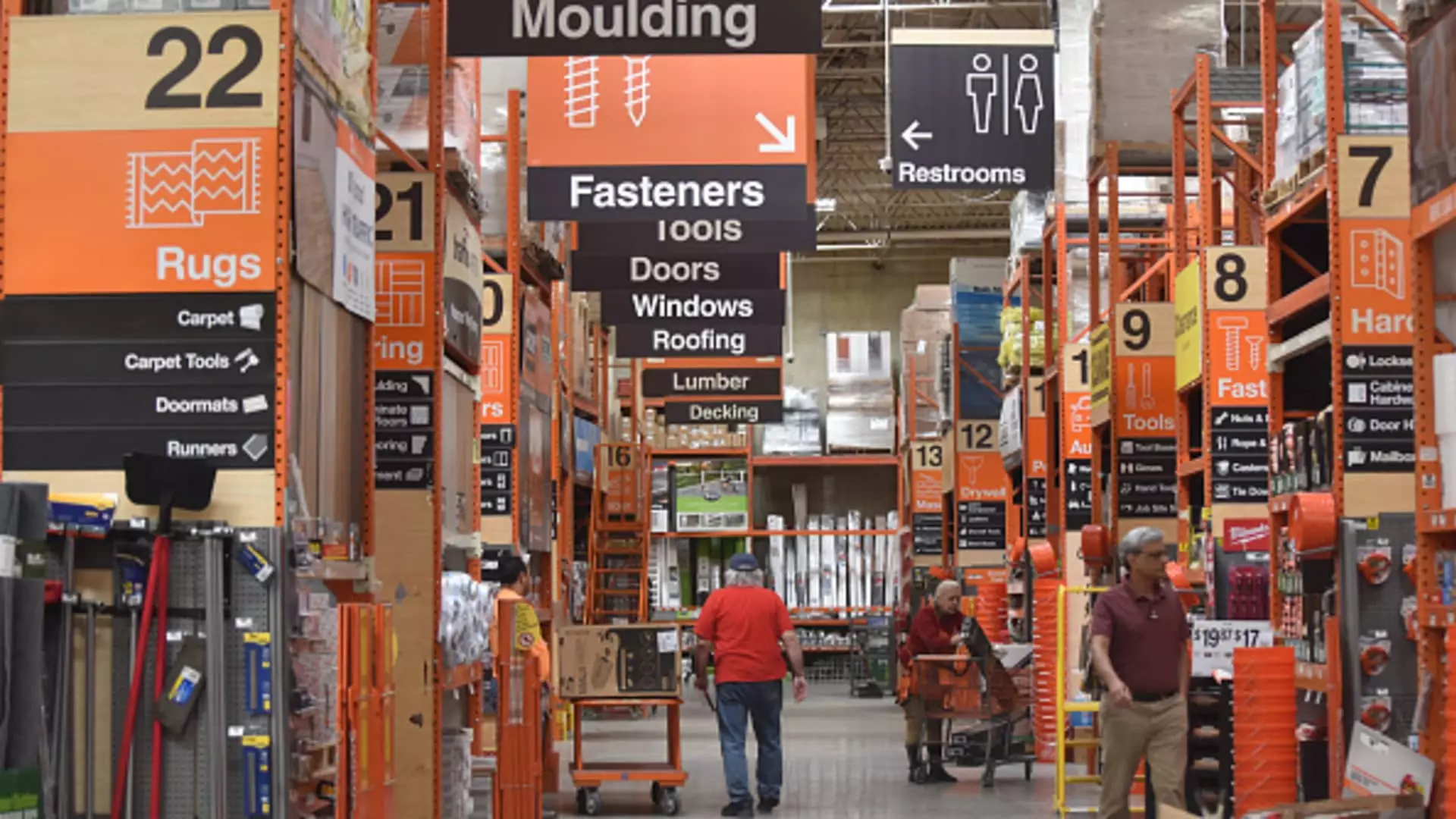Home Depot, the retail giant known for its home improvement offerings, recently reported its quarterly earnings, showcasing results that deviated favorably from market expectations. In the three months leading up to October 27, the company achieved net sales of $40.2 billion—a 6.6% increase compared to the same period last year and above the anticipated figures from analysts, which were around $39.3 billion. However, despite this encouraging sales growth, adjusted earnings per share (EPS) saw a slight decline of 1.8%, settling at $3.78 per share. Even though this was lower than last year, it surpassed the forecasted EPS of $3.64 that market watchers had predicted.
Although the same-store sales—a critical metric in retail—showed a 1.3% drop globally and a 1.2% decline in the U.S., both figures were better than anticipated declines of 3.1% and 2.9%, respectively. This resilience in sales performance indicates that Home Depot may be navigating through tough economic waters better than expected, even as the shares remained relatively stable through the trading day.
High interest rates and enduring economic uncertainty continue to apply pressure on Home Depot’s business model. The company’s same-store sales are particularly sensitive to changes in the economy, partly due to their reliance on larger remodeling projects that tend to slow when borrowing costs rise. CEO Edward Decker remarked on the organization’s cautious optimism, noting that while major renovations are pressured, the company has observed some signs of improvement—referred to as “green shoots”—which could signal a rebound in the housing market.
Indeed, the fluctuation in home equity line of credit (HELOC) rates is contributing to a potentially brighter outlook for larger renovation projects. As rates on HELOCs decrease, homeowners may find it more feasible to invest in renovations. The Federal Reserve’s actions on interest rates could significantly influence how quickly the housing market recovers.
Despite the existing economic challenges, Home Depot’s management is raising its projections for the rest of the fiscal year, highlighting an optimistic approach fueled by recent storm-related demand. The company is now anticipating an overall sales increase of 4%, a revision from their earlier guidance of between 2.5% and 3.5%. This positive adjustment includes the potential contribution from the acquisition of SRS Distribution, which has already proven profitable post-integration and is expected to bolster sales figures in the coming months.
While same-store sales are still projected to decline by about 2.5%, this is an improvement from earlier forecasts that expected a decline between 3% and 4%. Stability in gross margins and a slight uptick in adjusted operating margins reaffirm the company’s operational efficiency amid fluctuating market conditions.
The latest financial results have emboldened investors, leading some analysts to increase their price target for Home Depot shares, reflecting a belief that the stock will continue to trend positively as economic conditions improve. The company’s positioning to capitalize on future interest rate reductions and an anticipated recovery in the housing market has rendered confidence among long-term investors, which might be particularly appealing given the volatility present in retail.
Furthermore, Home Depot’s strategic focus on outdoor gardening, building materials, and the paint department has resulted in growth over the previous year, indicating that while some areas may be struggling, others are brimming with potential. This diversification allows the company to tread water well through cyclical downturns, highlighting its adaptability.
Home Depot is harnessing encouraging signs within a challenging environment, indicating that it may be on the precipice of a financial uptick as we approach 2025. Despite pressure from external economic factors, proactive management strategies, increased sales, and a comprehensive understanding of consumer needs exemplify Home Depot’s resilience. For investors, patience is essential as the company aligns itself for a potential market recovery. With prudent strategic adjustments and a firm grasp on the evolving economic landscape, the home improvement giant offers not only hope but potentially lucrative opportunities in the coming years.

